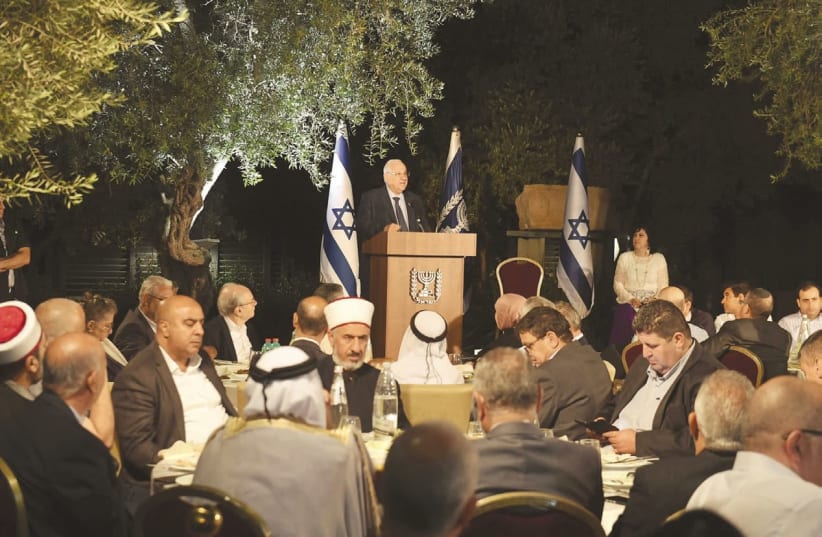Arab leaders urge Rivlin, police to seize illegal weapons in community
This year, the guest list was even longer and also included Christian Arabs. It was the largest such presidential Iftar gathering since former president Moshe Katsav established the tradition.
